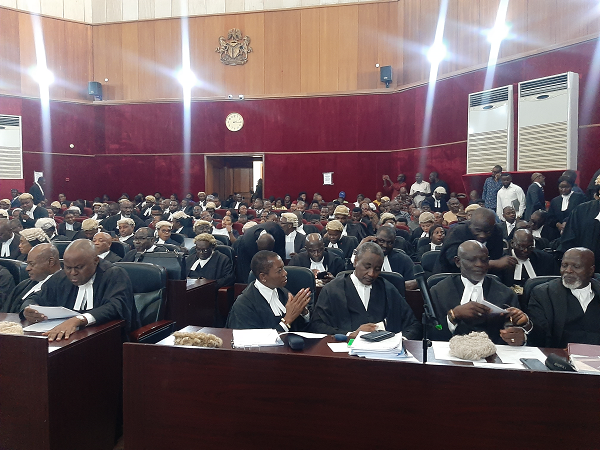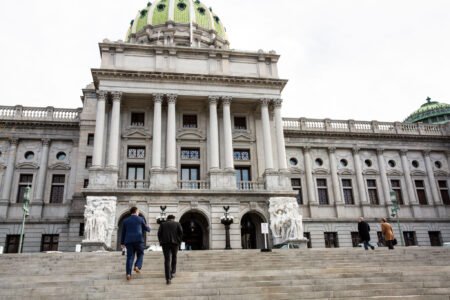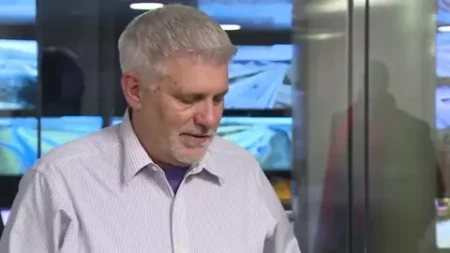Nigerian voters have a clear constitutional right to join election petitions, a fact often ignored in the country’s electoral dispute system. Unlike Nigeria, Kenya has made major strides to protect the rights of ordinary citizens in challenging election irregularities. This article explores these differences and the legal basis supporting Nigerian voters’ rights to participate in election petitions.
In April 2017, Kenya witnessed a landmark ruling that changed its presidential election process. Maina Kiai, a lawyer and human rights advocate, was not a politician or candidate but an ordinary citizen. From 2003, Kiai chaired Kenya’s National Human Rights Commission and later served as the UN Special Rapporteur on Freedom of Peaceful Assembly and Association until 2017. In 2016, he challenged Kenya’s Independent Electoral and Boundaries Commission (IEBC) in court.
Kiai acted under Kenya’s 2010 Constitution to protect the integrity of elections. The Kenyan Court of Appeal explained on April 7, 2017, that elections often face manipulation from voter registration to result announcements. Such interference erodes public trust in democracy, courts, and governance institutions. The Kenyan Elections Act of 2011 and the IEBC’s 2012 regulations allowed final election results to be changed after polling unit declarations. Kiai argued that this created a loophole that made it possible to tamper with presidential results.
Despite doubts that ordinary citizens could bring such a case, Kenyan courts granted Kiai and others standing to sue. Both the High Court and the Court of Appeal upheld the petition, declaring the contested provisions unconstitutional. This ruling effectively banned election rigging through multiple collation stages. The IEBC was required to ensure results at polling units matched those announced finally.
Later in 2017, Kenya’s Supreme Court nullified the presidential election results due to significant alterations in the tallying process. This was a historic move, marking one of the first times a presidential election was overturned on these grounds. Notably, earlier petitions by ordinary citizens like Gladwell Otieno in 2013 laid groundwork for such legal activism.
In contrast, Nigeria’s electoral system restricts election petitions to political parties, candidates, or the Independent National Electoral Commission (INEC). Nigerian courts often deny voters’ right to participate in petitions, even though the election outcomes directly affect them. This denial has no solid constitutional basis. Nigeria’s 1999 Constitution under Section 6(6)(c) empowers courts to determine civil rights and obligations, including voting rights. Voting is a core civil right and duty protected by Nigeria’s Constitution, the African Charter on Human and Peoples’ Rights (domesticated into Nigerian law), and the Universal Declaration of Human Rights.
The Kenyan Court of Appeal’s 2017 judgment emphasized the sovereignty of the people and the supremacy of the Constitution. It stressed that citizens must defend the Constitution and cannot do so if judges exclude them from election matters. The failure to allow voters to participate weakens democracy and fuels impunity in election fraud.
Opponents argue that allowing millions of voters to join election petitions would be difficult to manage. This is a logistical, not a legal, objection. There are proven ways to address this. For example, Nigeria’s 2008 Electoral Reform Committee, led by former Chief Justice Mohammed Lawal Uwais, recommended shifting the burden of proof to INEC to show that elections were free and fair. This process would be open to citizen participation and contestation.
Another solution is to grant voters or civic groups standing in election petitions in a representative or test capacity. Voters share a common interest in credible elections and accurate results. This approach does not require constitutional amendments but only the courts’ willingness to uphold existing constitutional rights.
Both approaches can work together. The key is to protect the electoral process from corruption, fraud, and malpractice. The courts must not leave election disputes to the same officials suspected of wrongdoing. Nigerian voters deserve the constitutional right to challenge elections and defend their votes.
Allowing citizens to participate in election petitions will strengthen Nigeria’s democracy. It will ensure greater transparency, accountability, and public confidence in election outcomes. It is time for Nigeria’s courts to recognize and enforce the constitutional rights of voters in election disputes.







